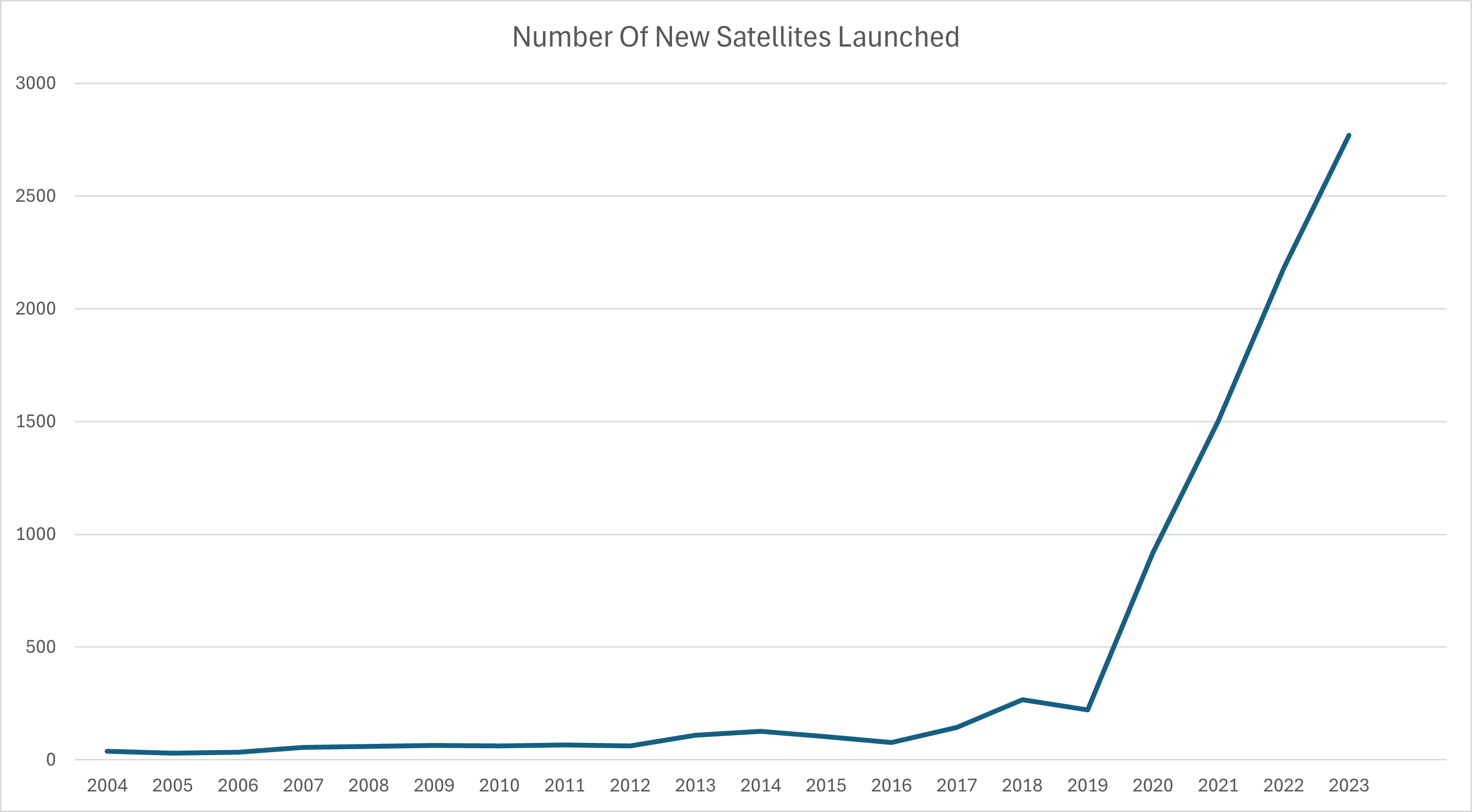If we want to live in the modern world, we can’t help but be reliant on space. Satellites whizzing about over our heads provide us with telecommunications and precise positioning, as well as keeping us safe with weather forecasting and many other analyses, like keeping an eye on wildfires, floods, ice, and pollutants released into the atmosphere.
But the population of satellites has skyrocketed (pardon the pun) in the last several years, and this has changed the landscape (skyscape?) of what is going in orbit. As of today, June 11, there are 11,780 satellites orbiting our planet according to the United Nations Office for Outer Space Affairs (UNOOSA). Most of them are functioning and in low-Earth orbit.

The number of satellites in orbit has massive increased in the last few years.
Image credit: © IFLScience
Geostationary orbit (GEO) is also known as geosynchronous orbit, and it is located 35,786 kilometers (22,236 miles) in altitude above Earth’s equator. A satellite placed there will follow the same spot on the Earth’s surface as it moves around the planet with the same period it takes the Earth to spin. There are currently 552 satellites there. Communications and weather forecasting satellites are often placed in GEO.
Then there is medium-Earth orbit (MEO), a vast region from 2,000 kilometers (1,243 miles) up all the way to GEO. This is a prime location for navigation satellite constellations such as the Global Positioning System, Galileo, GLONASS, and BeiDou. There are 199 satellites currently in this orbit, but some space internet providers are considering moving here.
And the reason for that is that low-Earth orbit (LEO) is getting crowded. There are currently 8,110 satellites in LEO and 6,050 of them are from SpaceX’s megaconstellation Starlink. The project from Elon Musk’s company aims to double its current number to reach nearly 12,000 satellites. And it could be expanded even more, to 34,400 satellites.
There are many concerns about the deployment of so many satellites, especially in LEO. One major concern is how it is changing the night sky both for advanced astronomy but also just in terms of light pollution, even in areas that do not have artificial lights.
The other concern is the massive increase in space junk. Space is big for sure, but interesting and valuable orbits are a small subset of that. Satellites need to have their orbits readjusted often, and all these movements lead to some of them crossing paths. But what happens when the satellites are no longer working? There are almost 3,000 objects like that! Their orbits will continue to change but with no ability for us to control them (there are some proposed countermeasures though).
A collision is space could herald worse to come. Collisions beget collisions simply because a piece of space junk breaking apart becomes a swarm of space junk. Scientists are concerned that we could end up in a Kessler Syndrome situation, where the number of collisions and amount of space debris grow exponentially. This scenario could render entire regions of near-Earth space a danger to pass through.
Source Link: How Many Satellites Are Currently In Orbit?